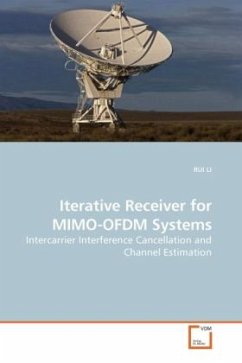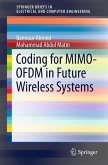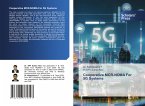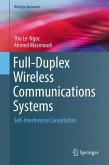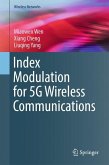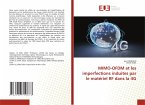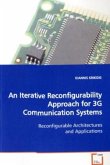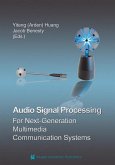OFDM with multiple antennas has been considered in the future wireless communication systems. The challenge in the detection of a space-time signal is to design a low-complexity detector, which can remove interference resulted from channel variations and approach the interference-free bound. In this book, we employ an iterative receiver with a decoder metric, so that the bias effect in the iterations is considerably reduced, which is critical for the performance of the iterative algorithm. A new algorithm is proposed for intercarrier interference cancellation in high mobility scenarios. Furthermore, a simplified method is developed to reduce the computation complexity in the frequency- domain equalizer. In time-variant scenarios, we investigate a pilot-assisted channel estimation method under the assumption that the channel can be approximated by a linear model. The estimated channel will be used to update the frequency-domain equalizer and parallel interference canceler (PIC) inthe iterative MIMO-OFDM receiver. It is shown that the proposed equalization algorithm with estimated channel state information can mitigate the effect of ICI effectively.
Bitte wählen Sie Ihr Anliegen aus.
Rechnungen
Retourenschein anfordern
Bestellstatus
Storno

